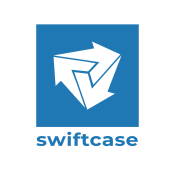"Cash flow problems mean a business spends more than it earns"[1]. In 2016 SmallBusiness.co.uk reported that 54% of Small and medium sized enterprises identified cash flow problems as one of the biggest obstacles to business growth[2]. Cash flow problems occur when expenses such as rent, pay roll and supplies is more than sales. The problem can be caused by customers paying their invoices late, inhibiting operation and growth and ultimately survival.
Poor cash management means that a business is not be able to invest in assets such as equipment and inventory, invest in new technologies, pay their own suppliers, increase wages or hire more staff, or expand to new locations. Possible solutions for cash flow problems are:
- Take out a loan or obtain funding, however UK businesses typically pay higher rates of interest (over 8%) compared to European SMEs.
- Another solution is to use supply chain financing, factoring or invoice discounting. The number of UK SMEs participating in such programmes is less than European counterparts and the reason for this seems to be because such programmes are not widely available in the UK.
- Establish a good relationship with suppliers and vendors in case payment deadlines need to be extended.
- Pay invoices on the last possible day unless an early payment discount is offered.
- Encourage customers to pay early by offering discounts.
So it seems the solutions are precarious, none are ideal for solving the UK SME's cash flow problems. Often the best solution is to fix the process not the problem. In this case the process is at the end of the business workflow; ensuring that payment is received on time by issuing an invoice in a timely manner. A process should also be put in place chase late payments by issuing late reminders and/or penalty letters. However, issuing additional letters after late payment maybe an administration nightmare. Consistency is key to ensuring that the right message is conveyed to your clients. SwiftCase handles both processes: generating and issuing invoices, late payment letters and/or statements.
SwiftCase can be configured to automatically generate and send invoices to your client at the right point in your business process. Furthermore the invoice includes all the time spent, costs and materials assigned to the task and is professionally formatted.
Generating payment chasing letters is covered in SwiftCase. Any number of letter templates can be setup to meet certain criteria. For example, a reminder letter can be generated and sent to all customers who have not paid their invoice after a week, two weeks, three weeks, four weeks and so on. The content of each letter can be different and can provide details of balances owed and dates. The letter can also be generated with a statement so that customer is aware which invoices have not been paid. Once the letters are generated they can be automatically emailed to the customer or printed as a batch and posted.
Click here for more information on SwiftCase invoice and chasing payment features.
Get in touch with us today, for a free, no-obligation demonstration.
References
[1] http://smallbusiness.chron.com/cash-flow-problems-business-4916.html[2] http://smallbusiness.co.uk/cash-flow-problems-2534966/
